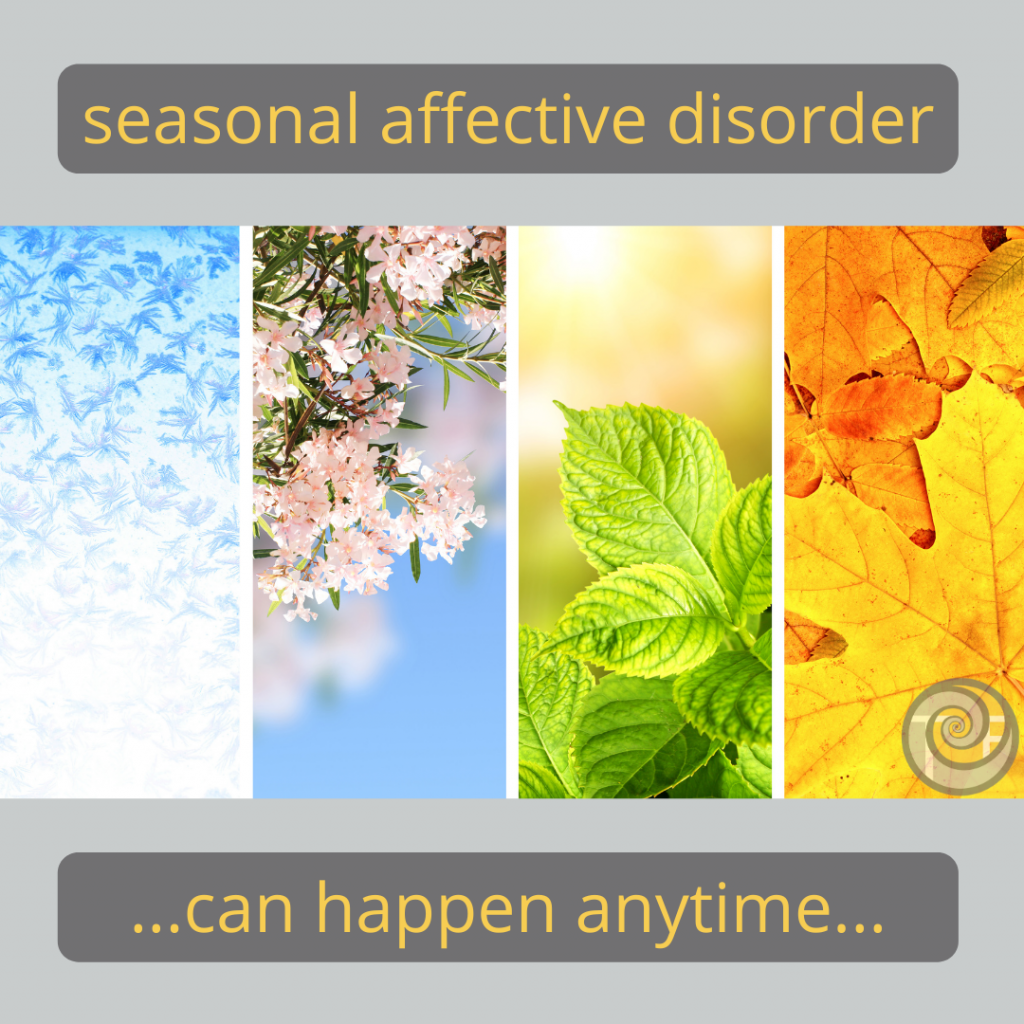While the winter is often associated with Seasonal Affective Disorder (SAD), a good bit of literature on SAD neglects to mention that SAD can occur in any season, including spring.
The arrival of spring often heralds a new lease of life and energy for most people, but for those suffering from depression the effect can be drastically different.
SAD is a type of depression associated with the shorter, darker days of winter when you’re not going outside as much or getting as much sunlight. SAD can be treated with light therapy and tends to improve as the days get longer and warmer.
Unfortunately, the onset of warmer days doesn’t bring respite for everyone. Some people suffer from a different form of seasonal depression, which peaks over the spring and summer months. Often called ‘reverse SAD’ or ‘summer SAD’, this may be all the harder to tolerate for being poorly understood. After all, many people can relate to feeling miserable and gloomy in winter, but a summer-related depression can be truly isolating.
Some people may experience disrupted sleep as it gets hotter and lighter – a big factor in depression, with others perhaps battling with body image difficulties. Then there is the added onslaught of allergies as plants release pollen, millions of people with hay fever start to sniffle and sneeze.
Some symptoms of depression include:
* Sad, anxious or “empty” feelings
* Feelings of hopelessness and/or pessimism
* Irritability, restlessness
* Fatigue and decreased energy
* Difficulty concentrating, remembering details and making decisions
* Difficulty sleeping or oversleeping
* Changes in weight
* Experience thoughts of death or suicide
If you are someone prone to springtime depression anyway, this year may pose even more challenges than usual. As the UK begins its gradual return to the new different, with lockdown restrictions relaxing, there will be increased mental health issues as life ‘restarts’.
What can you do if you’re suffering from reverse SAD?
In addition to seeking treatment from a GP or therapist when feelings of depression persist, you can also protect your mental health:
Care for your overall health. Physical activity reduces depression and anxiety. Adequate nutrition is also important to maintaining your mental health. In general, make sure you’re getting enough sleep, exercise and nutritious food.
Find a hobby you enjoy. Positive social interaction reduces negative mental health symptoms.
Interact with a pet. Pet owners get more physical exercise and have lower triglyceride levels than their non-pet-owning counterparts. This can also have a positive effect on your mental health.
Volunteer. People who spend time volunteering experience a greater psychological well-being.
Protect each other. Keep an eye out for neighbours who do not leave their homes and have infrequent visitors.

